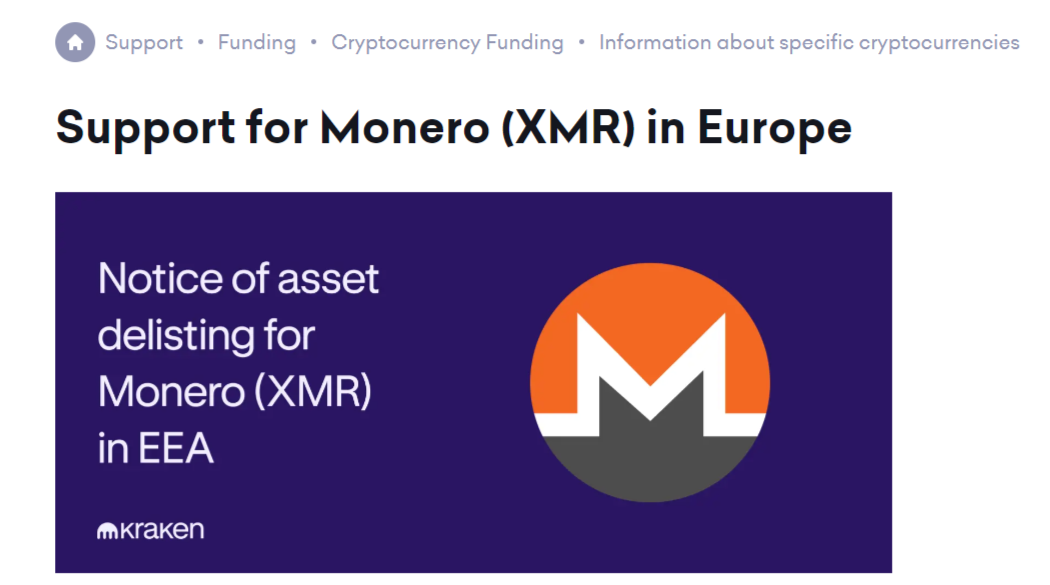Monero (XMR), the largest and most popular privacy-focused cryptocurrency, is facing delisting from the Kraken cryptocurrency exchange. Although European users only have 30 days to trade XMR pairs, Monero (XMR) founders treat this step as a sign of the project's quality.
Cryptocurrency exchange Kraken delists Monero (XMR) in Europe
Yesterday, October 1, 2024, the well-established cryptocurrency exchange Kraken announced that it will delist Monero (XMR) from all users in Europe by the end of this month. According to the statement, trading on the XMR/USD, XMR/EUR, XMR/BTC, and XMR/USDT pairs will be suspended on October 31st for all customers registered in the EEA.

The Kraken team emphasized that this decision was made due to the increased regulatory crackdown on centralized exchanges, especially privacy coins.
After thorough consideration and consideration of all viable alternatives, we have concluded that we have no choice but to delist Monero (XMR) in the European Economic Area (EEA) due to regulatory changes.
Therefore, on October 31st, both XMR pair trading and Monero deposits will be suspended. Traders can then withdraw their XMR holdings until December 31, 2024.
On December 31st, all remaining XMR will be automatically converted to Bitcoin (BTC), the largest cryptocurrency at current market rates.
The converted XMR will be redistributed to affected holders on January 6, 2025, the team said.
Following this announcement, the price of Monero (XMR) fell by 7.2%. The asset is trading at $142.17, its lowest since early August.
Monero (XMR) founder Spani: Not being able to squeeze enough information out of XMR privacy
According to CoinGecko data, Kraken was one of the last remaining Tier 1 exchanges supporting XMR trading, along with Gate.io and KuCoin.
Monero (XMR) founder and long-time lead contributor Riccardo Spagni commented on the delisting, saying it was due to the fact that the assets remain untraceable to law enforcement and investigators. Ta.
For cryptocurrency users, we recommended buying Monero (XMR) with Bitcoin (BTC) on non-custodial services and compared the challenges of using privacy coins and messaging with PGP.

